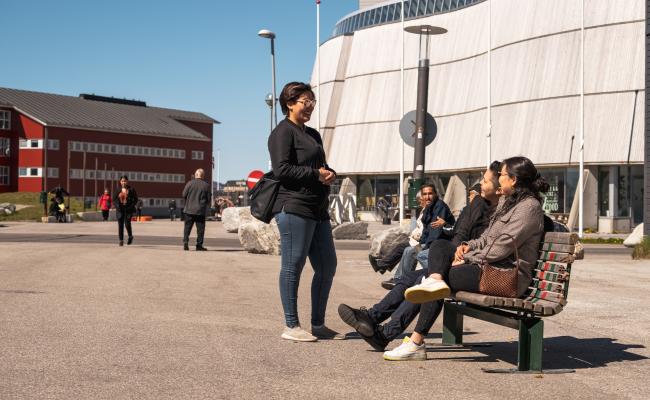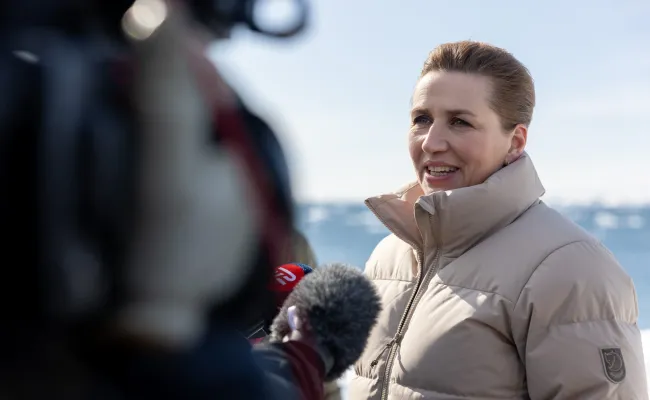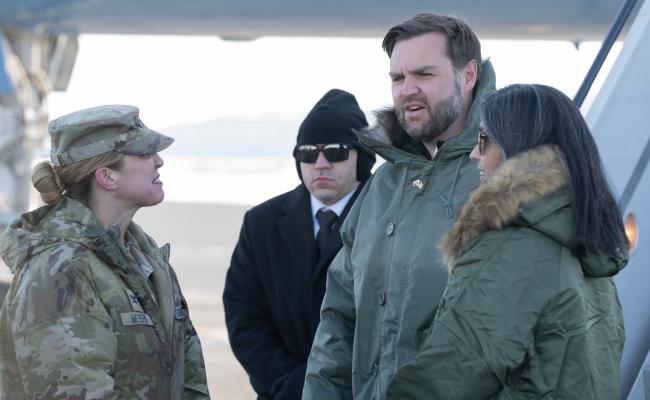Support of Independent Membership for Greenland and the Faroe Islands in Nordic Cooperation
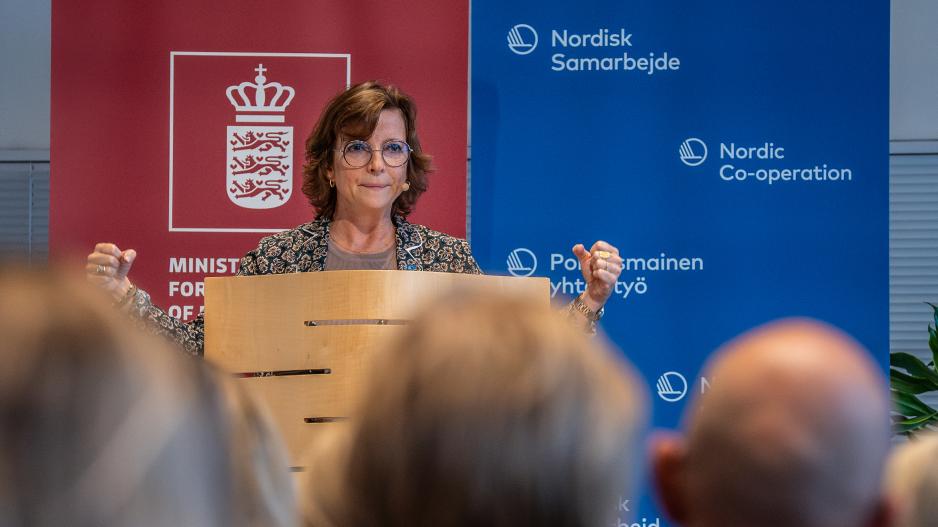
Current geopolitical tensions require new inclusive measures to ensure Nordic unity and resilience, argues Karen Ellemann. She has been the Secretary General of the Nordic Council of Ministers since 2023 and has a background as a long-time politician in Denmark, serving as both a minister and a parliamentarian in the Liberal Party. (Photo: Maria Louise Reichardt/norden.org)
"The current geopolitical situation shows how important it is that we stick together in the Nordic region," says the Secretary General of the Nordic Council of Ministers, arguing that Greenland and the Faroe Islands should be granted full-fledged participation in official Nordic cooperation.
The two self-governing countries in the Kingdom of Denmark seek full membership in the official Nordic cooperation bodies and reacted strongly to the lack of invitations to several Nordic ministerial meetings throughout last year.
In response to this exclusion, the then Greenlandic Prime Minister Múte B. Egede, boycotted the Nordic Council meetings.
Since then, Donald Trump has made a comeback as US president with repeated demands for American control over Greenland, including threats of annexation.
Greenland and the Faroe Islands should now be given the right to act as independent countries in the formal Nordic cooperation, Karen Ellemann, Secretary General of the Nordic Council of Ministers, says to Politiken.
This wish should not be impossible to fulfill.
"Necessary revision"
"I fully understand the frustration of the former Greenlandic Prime Minister. It was clear what position Greenland wanted to have in the formal Nordic cooperation, and with Trump in the White House, this wish should not be impossible to fulfill," Ellemann states to the aforementioned newspaper..
The Secretary General admits that, as a civil servant, she is doing something unusual by speaking out in an ongoing political discussion, but points out that strong unity and resilience in the Nordic region are crucial in meeting the challenges facing the region.
"The current geopolitical situation shows how important it is that we stick together in the Nordic countries. Our ‘Nordic constitution’ (the Helsinki Treaty) should reflect this, and therefore a revision of it is necessary," she argues in a sharing of the article in Politiken on LinkedIn.
"Renew the Helsinki Treaty!" was precisely a significant call from the parliamentarians to the Nordic governments at the Nordic Council 2024 session in Reykjavik.
The 1962 treaty regulates cooperation in the Nordic Council and the Nordic Council of Ministers, and was last amended in 1995.
Formal Nordic cooperation
• The Nordic Council is the official body for Nordic inter-parliamentary cooperation. The council has 87 elected members from Norway, Sweden, Finland, Denmark, and Iceland – and the self-governed countries Greenland, the Faroe Islands, and Åland.
• More specifically, Norway, Sweden, Finland, and Denmark have 20 representatives each, while Iceland has seven. Denmark's representatives include two from Greenland and two from the Faroe Islands. Finland's delegation includes two representatives from Åland.
• The Nordic Council of Ministers is the the official body for Nordic inter-governmental cooperation. The five Nordic states are the council's members. The Faroe Islands, Greenland, and Åland are also represented, but do not have voting rights.
A study of legal implications
In more detail, the Nordic Council recommended that the governments establish a commission to prepare concrete amendments to the Helsinki Treaty.
The recommendation included proposals to add new areas of cooperation, such as security policy, and to examine the contractual status of Greenland, the Faroe Islands and Åland.
In their February response to the Nordic Council, the governments stated that Nordic cooperation and unity are more important than ever, given the current world situation.
However, they believe that it is important to look into how updating the treaty will impact other international agreements and responsibilities.
On April 4th, the governments therefore appointed Elina Pirjatanniemi, a law professor at Åbo Akademi, to study the legal implications. A team of experts in various fields of law will support her.
Among other things, they will examine the legal status of the Helsinki Treaty in relation to EU law, international law and national law.
To be presented next year
The study is due to be completed at the end of 2025, after which it will be presented to the Nordic Council of Ministers in early 2026. This is stated by Finland and Åland, which are holding the presidency of the council in 2025.
“We have heard the wishes of the Nordic Council and take them very seriously. Once the study is complete, the Nordic governments will be able to take a stand on how best to proceed with the possible update of the Helsinki Treaty,” said Anders Adlercreutz (SFP), Finland's Minister for Nordic Cooperation, on April 7th.
"I'm delighted that the governments have decided to initiate the legal review so that we can get a clear picture of the opportunities and potential that exists,” commented Secretary General Elleman the day after.
On LinkedIn, she refers to this as the first step toward updating the treaty.
"It will be wise in all ways if the Helsinki Treaty reflects the world we live in," states the secretary general.
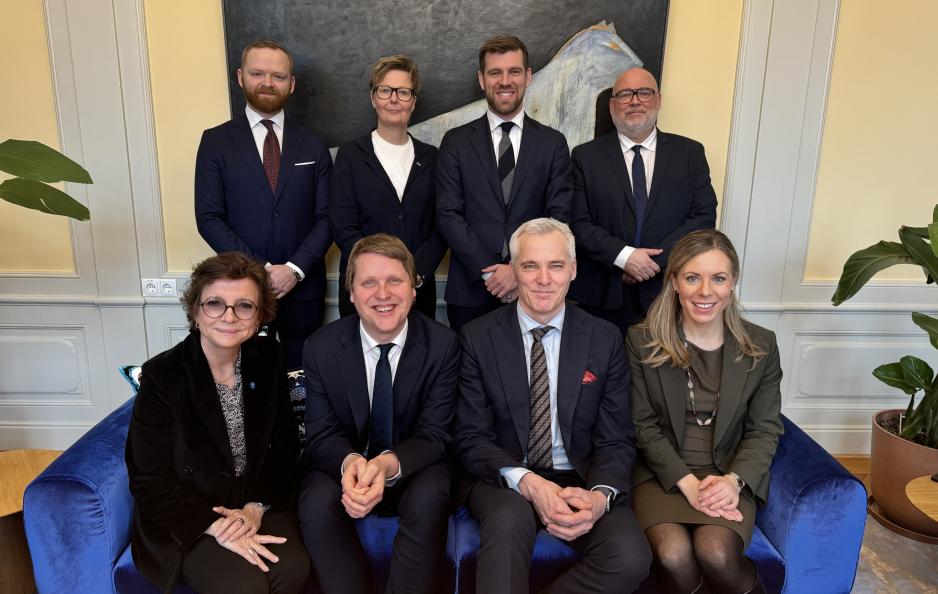
The Nordic Council of Ministers' Secretary General Karen Ellemann, together with the ministers for Nordic cooperation, on February 26th. At the front from the left: Norway's Amund Aukrust, Finland's Anders Adlercreutz, and Sweden's Jessica Rosencrantz. At the back from the left: Faroe Islands' Bjarni Kárason Petersen, Åland's Annika Hambrudd, Denmark's Morten Dahlin, and Iceland's Logi Einarsson. Greenland's Vivian Motzfeldt was not present. (Photo: Norden.org)
Extensive collaboration with ambitious vision
• Nordic cooperation encompasses several policy areas, including law and justice, working life, digitalization and innovation, environment and climate, sustainable development, energy, children and young people, culture, education and research, and gender equality.
• The cooperation's vision is that the Nordic region will become the world's most sustainable and integrated region by 2030.
Denmark's position
At the Nordic Council's session in the fall, Denmark's Prime Minister Mette Frederiksen (S) backed the Greenlandic and Faroese bids for their own membership in Nordic cooperation, but with a legal reservation.
"The Danish government supports the Helsinki Treaty revision so that the Faroe Islands and Greenland can achieve full membership within the legal framework that applies to the two countries," she said from the lectern.
Frederiksen also stated that she had conveyed this position to her Nordic prime minister colleagues in advance, emphasizing that Nordic cooperation should encompass all eight countries based on the principles of respect and equality.
This spring, the Danish Minister for Nordic Cooperation, Morten Dahlin (V), confirmed this policy from Copenhagen.
He may also seem to be open to political maneuvering to strengthen the participation of the Faroe Islands and Greenland in Nordic cooperation forums, for example, when it comes to meeting invitations.
"Right now, a legal study is underway, but that should not prevent us from providing political support for renewed and more equal Nordic cooperation," Dahlin tells Ritzau.
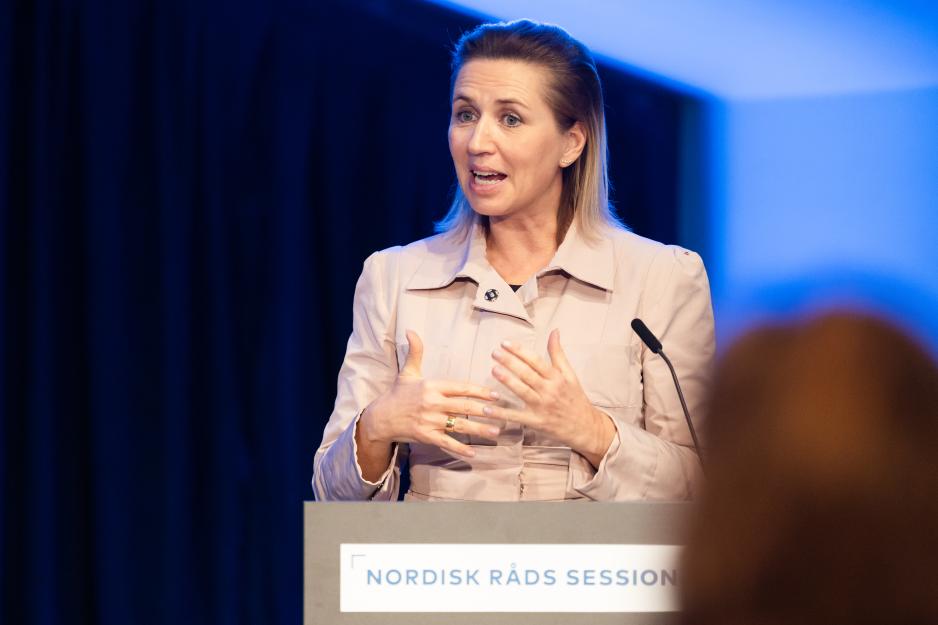
Denmark's Prime Minister, Mette Frederiksen. (Photo: Magnus Fröderberg/norden.org)
Relevant WTO membership process
As indicated, a central matter is whether Greenland and the Faroe Islands' constitutional status as part of the Kingdom of Denmark can create limitations for the exercise of independent membership in the Nordic cooperation.
A legal process between the Faroe Islands and Denmark is currently underway, which could impact the assessment of this question.
The Faroe Islands have not only long sought full membership in the Nordic cooperation formats, but also to become an independent member of the World Trade Organization, which the Danish side has rejected.
"If we are successful, it is a principled decision that may mean that we can become members of other international organizations in which we may be interested," said the Faroese PM Aksel V. Johannesen (Javnaðarflokkurin).
The committee has now started its process. It consists of two members elected by the Danish government, two members elected by the Faroese government, as well as three members of the Supreme Court of Justice appointed by its president.
At the beginning of this year, Johannesen stated that he expects a decision by the end of 2025.
The Prime Minister of the Faroe Islands, Aksel V. Johannesen. (Photo: Gwenael Akira Helmsdal Carre/norden.org)
Pleased with support
To Politiken, the Faroese PM calls for a changed interpretation of the constitution from the Danish government so that the realm can act with more contractual partners in international cooperation forums, such as the Nordic ones.
Johannessen also calls for a change in the standpoint of the Nordic governments that are hesitant to act for the increased inclusion of the region's self-governed countries.
"I am very pleased with the unambiguous support from the Council of Ministers' secretary general. I hope her statement will be noted in the other Nordic countries, particularly on the other side of Øresund," he writes to the newspaper.
With this, he refers specifically to the Swedish government. As last year's chair of the Nordic Council of Ministers and the informal Nordic cooperation format N5, Sweden was responsible for not sending invitations to the Faroe Islands and Greenland to several Nordic ministerial meetings.
Greenland sees potential
Jens-Frederik Nielsen (D), the new Prime Minister of Greenland, tells Politiken that he is prepared to continue his predecessor's boycott if the situation does not change.
Nielsen also states that Greenland's participation in the Nordic cooperation requires the country to be allowed to stand on its own feet, and believes that it must be possible to find solutions to this within the realm.
The scope for new solutions is illustrated by a “really good development” around the Arctic Council, Nielsen points out. Overall, Greenland, the Faroe Islands, and Denmark have, in this context, developed a joint model with a different distribution of roles among them, specifically in preparation for the kingdom’s upcoming chairship of the council.
On Sunday, Nielsen met with the Danish PM in Copenhagen to discuss the geopolitical situation and cooperation between the two countries.
"We are starting to modernize the Greenlandic-Danish relationship, said Frederiksen and announced that she is ready to look at updating the Act on Greenland Self-Government, writes KNR.
In light of the international situation, Greenland will stand closely together with Denmark and others with whom the country shares values, Nielsen emphasized.
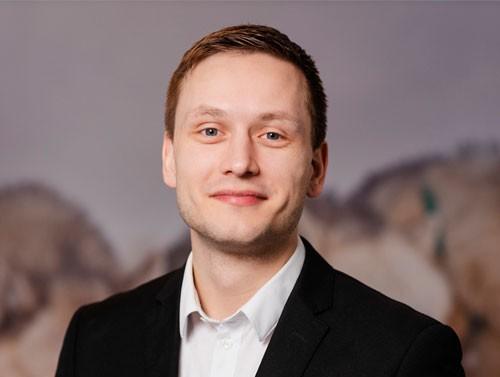
Jens-Frederik Nielsen, Prime Minister of Greenland. (Photo: Demokraatit)
"Should be a wake-up call"
It is also worth noting the critical view of Norway and Sweden in the Nordic context, expressed by Naaja Nathanielsen (IA), Greenland's Minister of Business, Energy, Raw Materials, Justice, and Equality, at the end of January.
She stated the following to Morgenbladet in light of Trump's statements on Greenland and the Greenlandic quest for independence vis-à-vis Denmark:
"I also think this situation should be a wake-up call for Norway and Sweden. It is time for you to see Greenland and the Faroe Islands as equal partners, not just as part of Denmark. Nordic countries have a narrative of themselves as being so good and equal, but have long ignored the conflict we have historically been in. I think the time is right to acknowledge the past, and that the Nordic region must also change with the times."
Finland, Sweden and Norway still hesitant
At the aforementioned session of the Nordic Council last autumn, the Prime Minister of Iceland expressed a positive stance on fulfilling the Faroe Islands' and Greenland's wish for independent membership, while the Prime Ministers of Finland, Sweden, and Norway adopted a wait-and-see attitude.
These positions also seem to persist.
Finland and Sweden's Ministers for Nordic Cooperation now say that they are awaiting the results of the study by the law professor and her team before taking a position on the revision issue, according to Politiken.
Norway's Minister for Nordic Cooperation, Åsmund Aukrust (Labor Party), also did not lift the veil in a meeting in the Norwegian parliament on April 10th where a report from the parliament's delegation to the Nordic Council for 2024 was discussed.
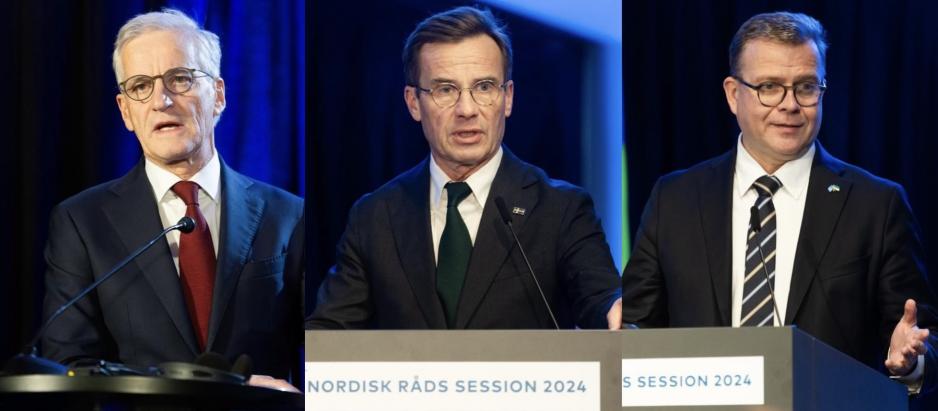
From the left: Norwegian Prime Minister Jonas Gahr Støre (Labor), Swedish Prime Minister Ulf Kristersson (M), and Finnish Prime Minister Petteri Orpo (National Coalition). (All photos: Magnus Fröderberg/norden.org)
Partly evasive
Aukrust initially only mentioned factual matters surrounding the commissioning of the study of the legal implications of the proposed treaty update.
Furthermore, he was asked by parliament member Tobias Drevland Lund (R) about how he will work in the Nordic Council of Ministers to keep the Nordic countries united and ensure that all countries experience that they participate on an equal footing – especially given the boycott of Greenland in 2024 and Trump's demand for control over the country.
The minister did not answer the question directly in any way, but did say the following about the intense pressure from the USA:
"There is no doubt about what Greenland's position is. It is crystal clear under international law. It is part of the Kingdom of Denmark, and what will happen to the Kingdom of Denmark is up to the Greenlanders and the Danes to decide, no one else."
"I think the most important thing we are doing now on our part is to give great support to the newly elected Greenlandic government and the Danish government's management of this matter. They know very well that Norway is on their side in this matter.
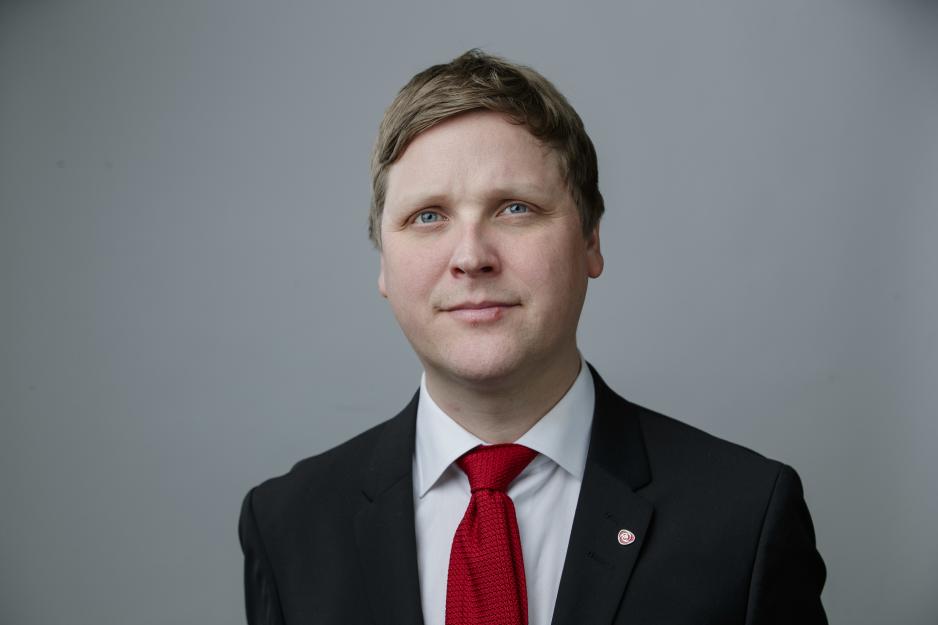
Åsmund Aukrust, Norway's Minister for Development and Nordic Cooperation. (Photo: Torgeir Haugaard/the Norwegian Armed Forces)



